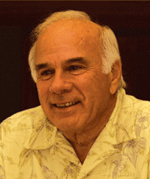 Great coaches who build great teams, need great leaders. After all coaches are human; they too have their ups and downs, especially when they are criticised, as is inevitable. Therefore in your sports community in which you want your children to thrive and experience the joys of growing up, parents as well as coaches need to become community leaders.
Great coaches who build great teams, need great leaders. After all coaches are human; they too have their ups and downs, especially when they are criticised, as is inevitable. Therefore in your sports community in which you want your children to thrive and experience the joys of growing up, parents as well as coaches need to become community leaders.
This imperative requires some introspection. What kind of leader would you say you are? Authoritarian? Hands-on? Laissez-fare? While there is no ‘right’ leadership style, there are certainly wrong ones. For instance, few individuals benefit from leaders who try to lead by fear and intimidation. On the contrary good leaders even if they are assertive, are also cooperative, caring, communicative, respected and respectable, willing to help, dedicated, cool under pressure, responsible and energetic. In short, good role models. In my opinion good leaders exhibit six essential characteristics. They: develop a vision; sell their vision; build teams; never stop learning and improving; embrace change, help others do likewise, and develop leadership in others.
Developing a vision. It’s important to ask yourself: what’s your vision for your sports programme? To develop your vision, picture your coach and team at the end of the season. What do you want them to have accomplished? How do you want them to feel about themselves and others? How do you want others to view your coach and his team? Like your coaching philosophy, your vision serves as a guide to direct your actions and helps accomplish your goals and objectives.
Sell your vision. From your very first meeting with your coaches — when they are excited and full of enthusiasm for what lies ahead — you should be selling them the future you envision for your programme and ensure that they embrace that vision as their own. You sell your vision by speaking in positive terms, by using words like “we” and “our”, by reinforcing behaviour that moves your programme towards the vision, and by being a walking, talking embodiment of what coaches and players need to do to achieve this vision.
Build teams. Successful leaders are able to get disparate individuals to work together to achieve common goals. In today’s me-first, self-obsessed sports world, respecting and supporting individual goals while getting coaches, players, parents and other members of the sports community to work together for achieving programme goals is one of the biggest challenges sports leaders/directors face.
Never stop learning and improving. Early in his career, New England Patriots’ coach Bill Belichick was accused of not understanding his players. So Belichick made a determined effort to change. To get a better idea of where some of his players were coming from, he visited prisons and the projects of Newark, New Jersey. He talked with gang members; he met more often with his players to get ideas and inputs to improve team performance. Belichick’s receptivity to new ideas and willingness to let himself be challenged has helped him score one of the best post-season winning percentages among NFL (National Football League) coaches.
Embrace change and help others do the same. Not only are great leaders undaunted by change, they welcome it and know how to make it happen. I have found that most administrators and coaches are genuine and committed when they say they accept that changes need to be made in their programmes for improving team performance. So why do changes so often fail to be implemented? I believe it’s because humans have such deep, ingrained resistance to change that they sometimes subconsciously act in ways that prevent change. If you feel this is happening to you, ask yourself what you are doing which could be undermining your commitment to change.
For instance, let’s say you establish an open-door policy to build a rapport with your coaches and encourage them to communicate with you. But then you don’t attend enough practices and games to maintain that rapport, or you fly off the handle if a coach communicates unpleasant information. You need to look at behaviour patterns that might be interfering with your ability to introduce change and work towards correcting such behaviour.
Develop leadership in others. In the final analysis the best leader is one who develops leadership in others. This means giving people opportunities to suggest and try new winning strategies and gambits, encouraging them to solve problems on their own. Do your interactions with coaches, athletes, parents and others help to develop leadership qualities in such individuals? Do you encourage them to take the initiative and think for themselves? Instead of berating people for committing mistakes, do you help people learn from them? Do you model flexibility and calmness in pressure situations? If so, then you are helping them shape into leaders who will build great teams and greater individuals.
(This article is adapted from Los Angeles-based sports psychologist Dr. George Selleck’s new book Coach Sense: Coaching to Make a Difference)























